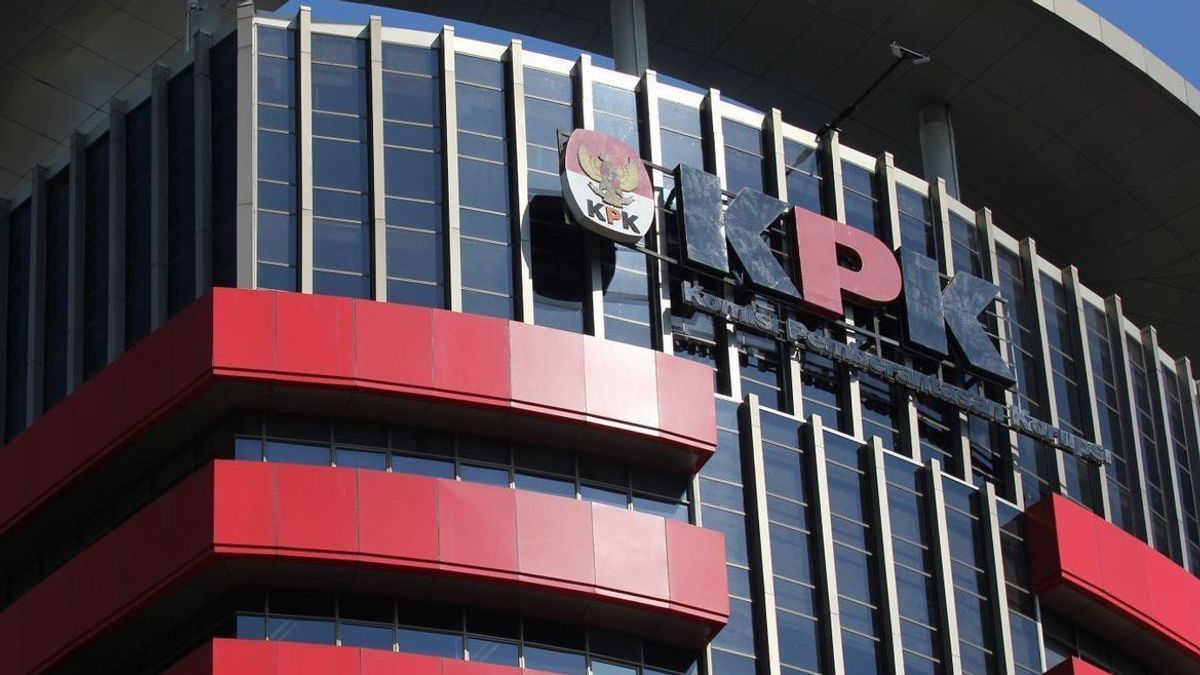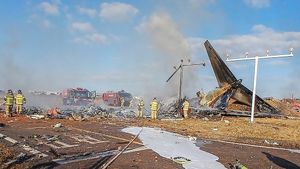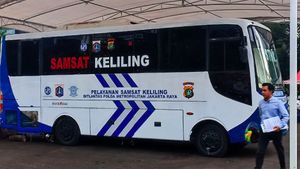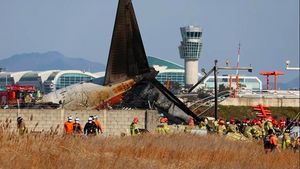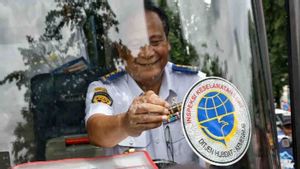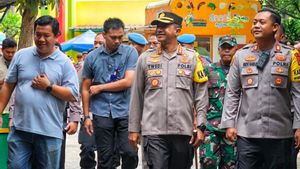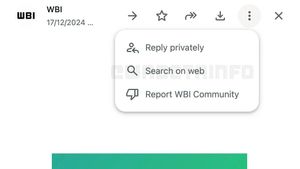JAKARTA - The Corruption Eradication Commission (KPK) in collaboration with the Education and Training Agency (Badiklat) of the Attorney General's Office (Kejagung) held education and training (training) to improve the competence of prospective KPK investigators and investigators.
The opening of the training in the Hall of the Indonesian Attorney's Training and Education Agency Jakarta, was attended by Deputy Chairperson of the KPK Alexander Marwata, Acting (Plt.) Deputy for Education and Community Participation of the KPK Wawan Wardiana, and Head of the AGO, Tony Tribagus Spontana.
"We want KPK investigators and investigators to be truly professional; because according to the law, KPK employees are recruited based on their expertise. So, prospective investigators and investigators who are recruited already have experience in the field of investigation and investigation," said Alex in a statement received in Jakarta. , Monday, February 21, quoted from Antara.
The training program was first held after Law Number 19 of 2019 concerning the Second Amendment to Law Number 30 of 2002 concerning the KPK was passed.
Previously, the recruitment of KPK investigators was carried out through a task transfer process, namely through assessment and training.
Alex explained that KPK investigators and investigators were different from other law enforcers. KPK investigators must be able to find two pieces of evidence in an alleged corruption case, before starting the exposure to move up to the investigation stage, he explained.
"So, at the investigation stage, we already know who the suspects will be," he said.
This practice, he continued, is still a guideline to this day, even though the KPK has the authority to issue an Investigation Termination Order (SP3).
"This is because the Corruption Eradication Commission wants to provide legal certainty, where when determining someone as a suspect, it must end in trial until it is decided by the court," he explained.
According to him, being a professional investigator and investigator must understand the laws and business processes, because the majority of corruption cases in Indonesia consist of cases of loss to the state and cases of bribery.
Meanwhile, he added, 90 percent of corruption cases in the regions are related to the procurement of goods and services. The same principle also applies to cases of corruption in other fields such as banking or the stock market.
Given the increasingly sophisticated modes of corruption, the KPK is also encouraging efforts to take action against corruption by adding the imposition of articles on Money Laundering (TPPU) and corporate crimes in order to maximize the return of losses to the state.
On the same occasion, Wawan Wardiana conveyed that education and training is an important part of fulfilling the competence of KPK employees.
He hopes that the training can be a guide for KPK employees to improve their understanding and ability to carry out their duties in the future, including the matter of KPK culture and work ethic.
"Even though the KPK has just joined as part of the State Civil Apparatus (ASN), it does not dampen the spirit of eradicating corruption," said Wawan.
Meanwhile, Tony Tribagus Spontana said that the cooperation between the AGO and the KPK could be a momentum for increasing law enforcement training, especially in preventing corruption.
The training program which lasted for one month was attended by 42 participants with different backgrounds, namely 24 people from the National Police, three people from the Ministry of Energy and Mineral Resources (ESDM), and 15 people from the internal KPK.
The participants will receive an educational curriculum consisting of orientation, code of ethics for investigations and investigations, expertise and skills, special subjects regarding the KPK and handling corruption as well as the authority for corruption and its practices.
The training materials will be taught by presenters from the AGO, the National Police, the Financial and Development Supervisory Agency (BPKP), the Government Goods/Services Procurement Policy Institute (LKPP), the Financial Transaction Reports and Analysis Center (PPATK), academics, and experts with relevant backgrounds. with the training program.
The English, Chinese, Japanese, Arabic, and French versions are automatically generated by the AI. So there may still be inaccuracies in translating, please always see Indonesian as our main language. (system supported by DigitalSiber.id)
